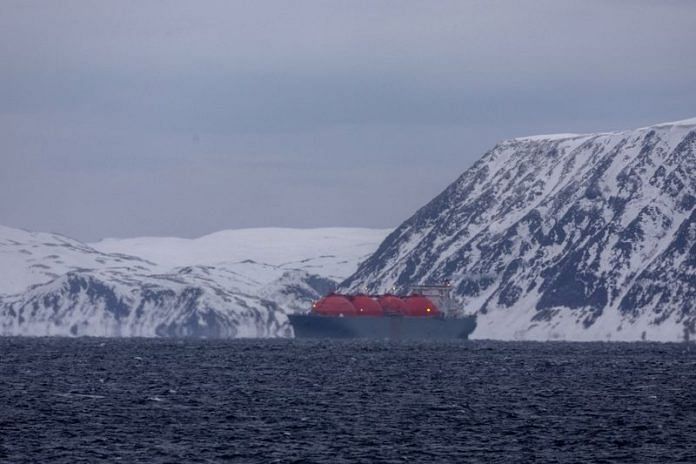By Georgina McCartney
HOUSTON (Reuters) – The Arctic could face more severe environmental impacts from oil spills if shippers switch to very-low sulfur fuel oil (VLSFO) following new, restrictive fuel regulations in the region, the Arctic Council said in a statement on Monday.
Ships sailing through Arctic waters can no longer use or carry heavy bunker fuel oil as of Monday, following a new regulation from United Nations shipping agency the International Maritime Organization (IMO) that aims to reduce pollution.
WHY IT’S IMPORTANT
The widely used alternative to heavy fuel oil (HFO) is VLSFO. European shippers broadly opted for VLSFO in 2020 when the same regulation took effect there.
If exposed to cold water in a spill, VLSFO forms clumps, whereas HFO remains liquid. Current oil spill equipment is not designed to collect oil clumps, Arctic Council working groups Emergency Prevention, Preparedness and Response (EPPR) and Protection of the Arctic Marine Environment (PAME) have found.
“We are not in a position to comment on specific studies. However, IMO welcomes submissions from Member States and international organizations to the relevant IMO body,” a spokesperson for the agency told Reuters on Monday.
CONTEXT
Shipping traffic in Arctic waters rose by more than a third from 2013 to 2023, according to PAME, and the distance traveled by vessels more than doubled, raising the risk of a spill.
KEY QUOTES
“The IMO had the best intentions when they introduced the Heavy Fuel Oil ban, and it will no doubt make a positive environmental impact in many ways,” expert and project lead for PAME and EPPR, Jon Arve Royset said in Monday’s Arctic Council statement.
“However, in the event of an oil spill, the new fuels being used as a result of this ban could have a far worse environmental impact than the old fuels they are banning.”
(Reporting by Georgina McCartney in Houston; editing by Jonathan Oatis)
Disclaimer: This report is auto generated from the Reuters news service. ThePrint holds no responsibilty for its content.



